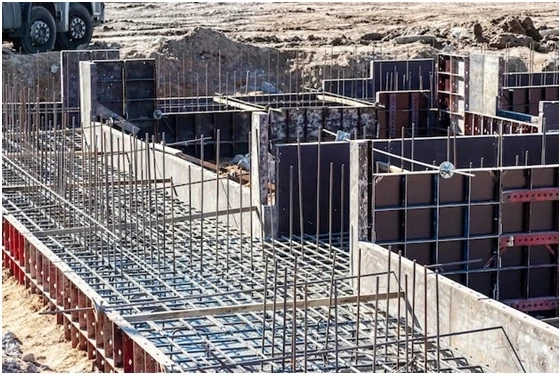Written By - Structural-india
Welcome to our blog post where we dive into the fascinating world of grouting! If you're embarking on a project that involves tiling or stone installation, then understanding the key differences between epoxy grouting and cement grouting is essential. These two materials may seem similar at first glance, but they have distinct characteristics that can make all the difference in achieving long-lasting and visually appealing results. So, grab your hard hat and let's explore the exciting realm of epoxy grouting versus cement grouting epoxy grouting !
What is epoxy grouting?
Epoxy grouting is a specialized type of grout that is composed of epoxy resin and hardener. Unlike traditional cement-based grouts, epoxy grouting offers superior strength, durability, and resistance to stains and chemicals. This makes it an excellent choice for high-traffic areas or spaces that are prone to moisture or chemical exposure.
One of the standout features of epoxy grouting is its incredible bonding power. It forms a strong adhesive bond with both tiles or stones and the substrate, ensuring long-lasting stability. Additionally, epoxy grout is highly resistant to cracking, shrinking, and fading over time.
Another advantage of epoxy grouting is its versatility in terms of application. It can be used both indoors and outdoors on various types of surfaces such as ceramic tiles, natural stone (including marble), porcelain tiles, glass mosaics - you name it! Epoxy's ability to adhere well to different materials ensures a seamless finish.
What is cement grouting?
Cement grouting, also known as cementitious grout, is a type of grouting material that is commonly used in construction projects. It consists of a mixture of cement, sand, and water. The primary purpose of cement grouting is to fill the gaps or voids between tiles or stones and provide stability to the structure.
When mixed with water, the cement forms a thick paste-like consistency that can be easily applied to surfaces using various tools such as trowels or squeegees. Once applied, it hardens over time to form a solid and durable bond.
One key characteristic of cement grouting is its ability to withstand high levels of compression and tension. This makes it suitable for applications where strength and durability are important factors, such as in heavy-duty industrial settings or outdoor areas exposed to harsh weather conditions.
The key differences between epoxy and cement grout
Epoxy grouting and cement grouting are two commonly used methods for filling gaps between tiles or stones. Understanding the key differences between these two types of grout can help you make an informed decision for your next project.
One major difference lies in their composition. Epoxy grout is made from a mixture of epoxy resin and hardener, while cement grout consists of cement powder mixed with water. This distinction alone sets them apart in terms of durability and longevity.
In terms of strength, epoxy grout surpasses cement grout by a wide margin. It offers excellent resistance to chemicals, stains, and cracks, making it ideal for high-traffic areas or spaces exposed to moisture like bathrooms or kitchens.
Cement grout, on the other hand, may not be as strong as epoxy but still provides satisfactory results in low-traffic areas such as bedrooms or living rooms. It is more porous compared to epoxy and may require regular maintenance to prevent staining or cracking.
Which type of grout is right for your project?
When it comes to choosing the right type of grout for your project, there are a few factors that you should consider. First and foremost, you need to assess the specific needs and requirements of your project. Are you working on a high-traffic area that will be exposed to heavy loads? Or is it a more decorative space where aesthetics are the main priority?
If durability is crucial, epoxy grouting might be your best bet. Epoxy grout offers superior strength and resistance to chemicals, stains, and cracking. It's ideal for areas like industrial floors or commercial kitchens where harsh conditions are prevalent.
On the other hand, if you're looking for versatility and ease of application, cement grouting may be the way to go. Cement grout is suitable for most indoor tiling projects such as bathrooms or kitchens. It's relatively easy to mix and apply, making it a popular choice among DIY enthusiasts.
Conclusion
When it comes to grouting, both epoxy and cement options have their own unique advantages. Epoxy grouting offers superior strength, durability, and chemical resistance, making it an ideal choice for high-stress applications such as heavy machinery or industrial settings. Its ability to bond well with different surfaces also makes it highly recommended for projects that require precision and long-lasting results.
On the other hand, cement grouting is more cost-effective and easier to work with in certain situations. It provides good compressive strength and allows for flexibility during installation. Cement grout is commonly used in residential construction projects like tiling bathrooms or kitchens where aesthetics are a priority.
Google Map - https://goo.gl/maps/tYPUHNsdzmcTeRDe9


